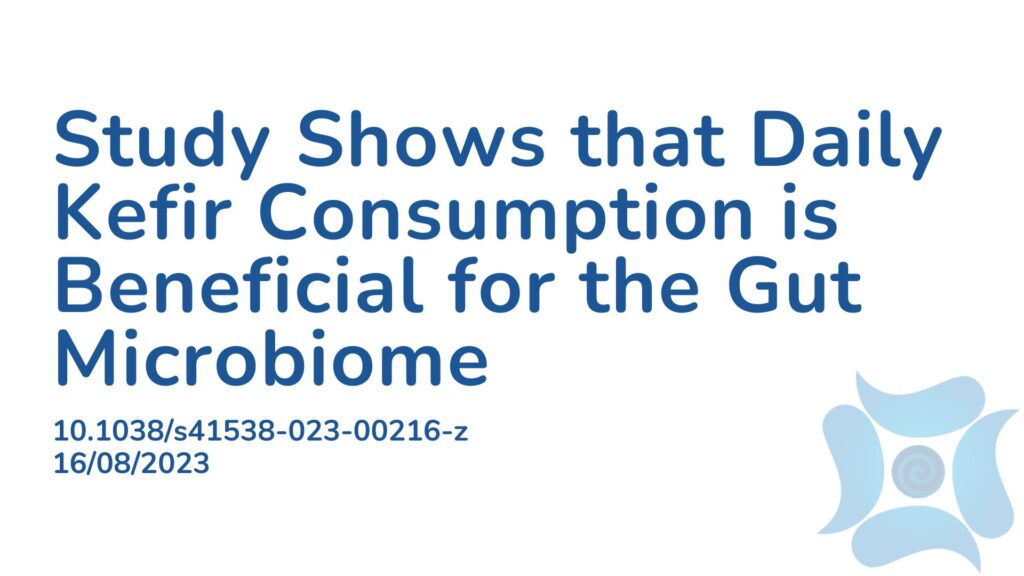Summary:
The micro-organisms residing in the human gut play a crucial role in our health, with disruptions in the gut microbiota associated with various diseases like colon cancer, diabetes, inflammatory bowel disease, and obesity. As a result, manipulating the gut microbiota has become a potential strategy for disease prevention and treatment, achievable through dietary interventions such as fermented foods, probiotics, and prebiotics. Probiotics can colonize the gut and provide health advantages, including relief from irritable bowel syndrome and protection against infections. Traditional fermented foods like kefir have also been linked to health benefits, although more research is needed. Prebiotics have been shown to alter the gut microbiome and also offer health benefits. This study investigated the effects of daily consumption of a fermented milk product with L. casei, traditional kefir, or an inulin-enriched diet (which acts as a prebiotic) on the gut microbiota of healthy participants over 28 days. The results showed that probiotics and inulin did not produce statistically significant results in regards to changing the number of bacterial strains. However, kefir consumption resulted in increased abundance of health promoting bacteria strains, leading the authors to conclude that daily consumption of kefir alone resulted in detectable changes to the gut microbiota.
Abstract:
It has been established that the human gut microbiota is central to health, and, consequently, there has been a growing desire to positively modulate its composition and/or function through, for example, the use of fermented foods, prebiotics or probiotics. Here, we compare the relative impact of the daily consumption of an inulin-enriched diet (n = 10), a commercial probiotic-containing fermented milk product (FMP) (n = 10), or a traditional kefir FMP (n = 9), over a 28-day period on the gut microbiome and urine metabolome of healthy human adults. None of the treatments resulted in significant changes to clinical parameters or biomarkers tested. However, shotgun metagenomic analysis revealed that kefir consumption resulted in a significant change in taxonomy, in the form of an increased abundance of the sub-dominant FMP-associated species Lactococcus raffinolactis, which further corresponded to shifts in the urine metabolome. Overall, our results indicated that daily consumption of a single portion of kefir alone resulted in detectable changes to the gut microbiota and metabolome of consumers.
Article Publication Date: 16/08/2023
DOI: 10.1038/s41538-023-00216-z



